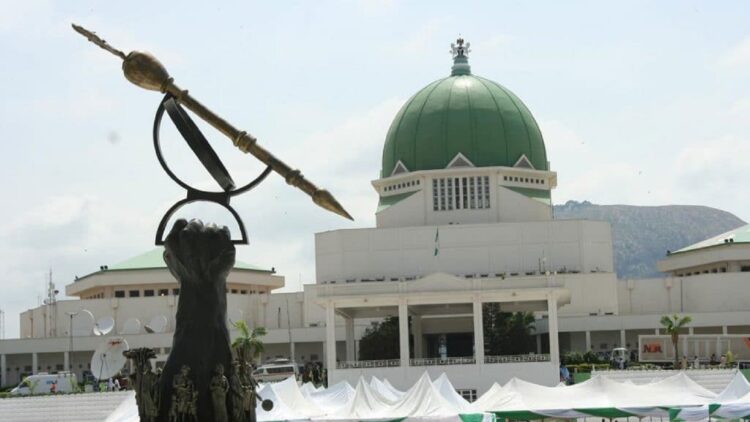NASS Proposal for General Elections in November 2026 has raised fresh controversies.
NewsOnline Nigeria reports that the National Assembly’s proposal to reschedule Nigeria’s next general elections including presidential, governorship, and legislative polls to November 2026 has sparked widespread controversy across political and civil society circles.
The move, contained in the draft amendment to the 2022 Electoral Act, seeks to hold elections six months before the expiration of current tenures, instead of the traditional February or March dates. According to Section 4(7) of the proposed amendment, presidential and governorship elections must be conducted no later than 185 days before the end of an incumbent’s term, fixing the 2027 polls for November 20, 2026.
ALSO: U.S. Revokes Wole Soyinka’s Visa Over Criticism of Donald Trump
Supporters of the amendment argue that the shift would enable the completion of all election petitions before inauguration, thus preventing situations where court rulings unseat elected officials years into their terms.
However, the proposal has drawn sharp criticism from opposition parties, analysts, and civic groups who warn that it could disrupt governance, trigger perpetual politicking, and drain public resources.
The African Democratic Congress (ADC), in a statement by its interim National Publicity Secretary, Bolaji Abdullahi, condemned the plan, calling it “a dangerous attempt to politicize governance and stall national development.”
“If elections are held in November 2026, campaigns will begin as early as 2025. That means ministers, governors, and government agencies will abandon governance for politics,” the statement read.
The party urged the National Assembly to drop the idea and instead focus on judicial reforms to expedite the resolution of election disputes without distorting Nigeria’s democratic calendar.
While Lagos-based lawyer, Kayode Akiolu, supported the amendment, noting that it could reduce electoral manipulation and violence, others, including public affairs analyst Prince Johnson Meekor, argued that the real solution lies in strengthening institutions rather than altering timelines.
“Changing the election calendar won’t fix the problem. Other democracies resolve election disputes quickly without changing dates. What we need is efficiency, not endless amendments,” Meekor stated.
Defending the proposal, Chairman of the House Committee on Electoral Matters, Adebayo Balogun, said the goal was to ensure credible transitions. He revealed that tribunal timelines would be shortened, with judgments delivered within 90 days and appeals concluded within 60 days.
The amendment also includes provisions for early voting by security officers, INEC staff, journalists, and accredited observers two weeks before the general polls.
As debate continues, analysts warn that the proposal could reshape Nigeria’s electoral cycle with significant implications for governance, campaign finance, and political stability ahead of 2027.














